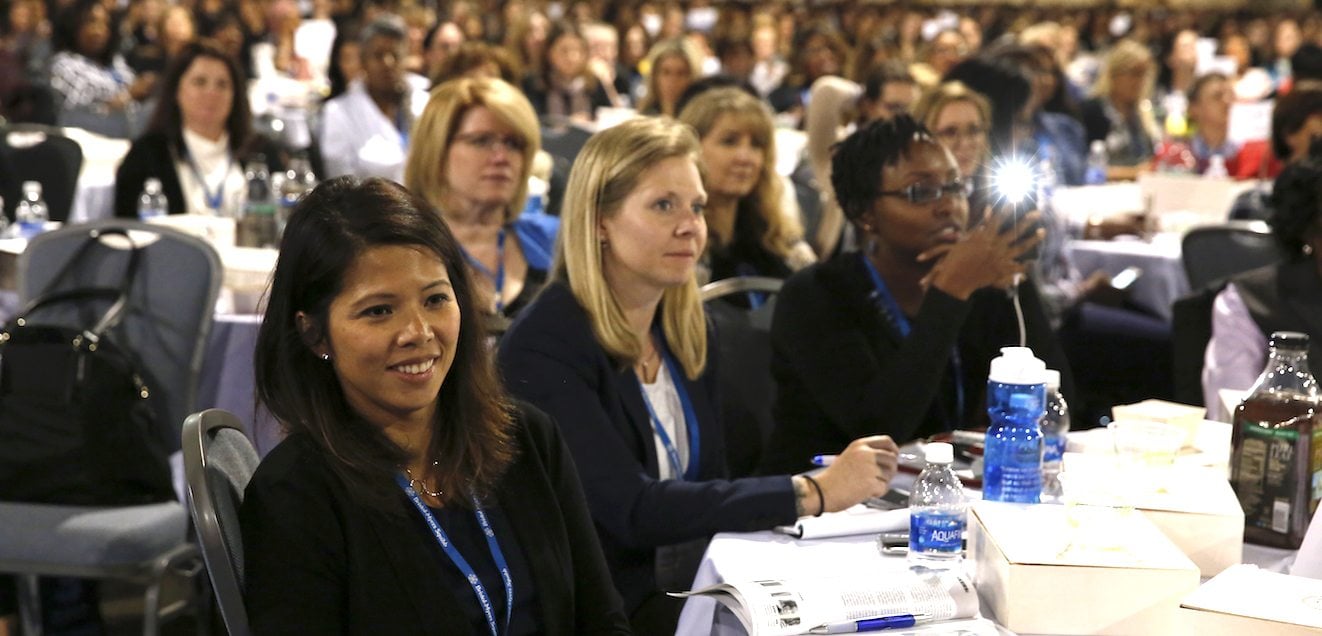The Power of Us, Quantified in HBR

We’re proud to have made it into the Harvard Business Review today, in an article by happiness researcher and Conference for Women veteran Shawn Achor.
You can read the full article here, but here are our main takeaways:
- People can be cynical about the utility of women’s professional conferences. Achor’s [male] seatmate on a recent flight said “I’m all for equality, but I’m not sure what good it will do.”
- What good CAN it do? Achor spoke with fellow happiness researcher Michelle Gielan, and the two decided to survey attendees in advance of the 2017 Conferences for Women in Pennsylvania, Massachusetts, and Texas.
- They wanted to know what, if any, financial or intellectual impacts could be measured among attendees.
- They surveyed 2,600 women, using prior attendees to study outcomes and first-time attendees as a control group.
- Among attendees who had never attended the Conference, 18% had received a promotion over the past year. During the same economic period, 42% of women who had attended the Conference received a promotion.
- The likelihood of receiving a promotion doubled after attending the Conference for Women.

- 5% of women in the control group received a pay increase of more than 10% compared to 15% of women who had attended the Conference.
- Attendees of the Conference for Women had triple the likelihood of a 10%+ pay increase.
- 71% of prior attendees reported that they “feel more connected to others.” Achor’s book Big Happiness argues that social connection is the greatest predictor of success and happiness, and tangentially leads to longer, healthier lives.
- 29% of prior attendees reported that they “agree a lot” with the statement “I feel happier.” 78% of prior attendees reported feeling “more optimistic about the future” than before the Conference. 25% of prior attendees reported that they “agree a lot” with the statement “I feel more capable of handling stress in a positive way.”
“Laurie Dalton White, founder of the Conferences for Women, adds ‘Something special happens when you see that you are not alone. Making connections and building relationships with other attendees and speakers helps women form an understanding of their worth, and then they learn strategies to ask for promotions, seek fair pay, and even become a mentor to others.

‘We invite women like Michelle Obama and Sheryl Sandberg to speak at our conferences not just because of their own personal success stories, but because they are role models who inspire women in both big and small ways.'”
Achor and Gielan’s findings suggest that business leaders ought to encourage employees to find social connections in a professional context.
The result may be a happier and healthier workforce.